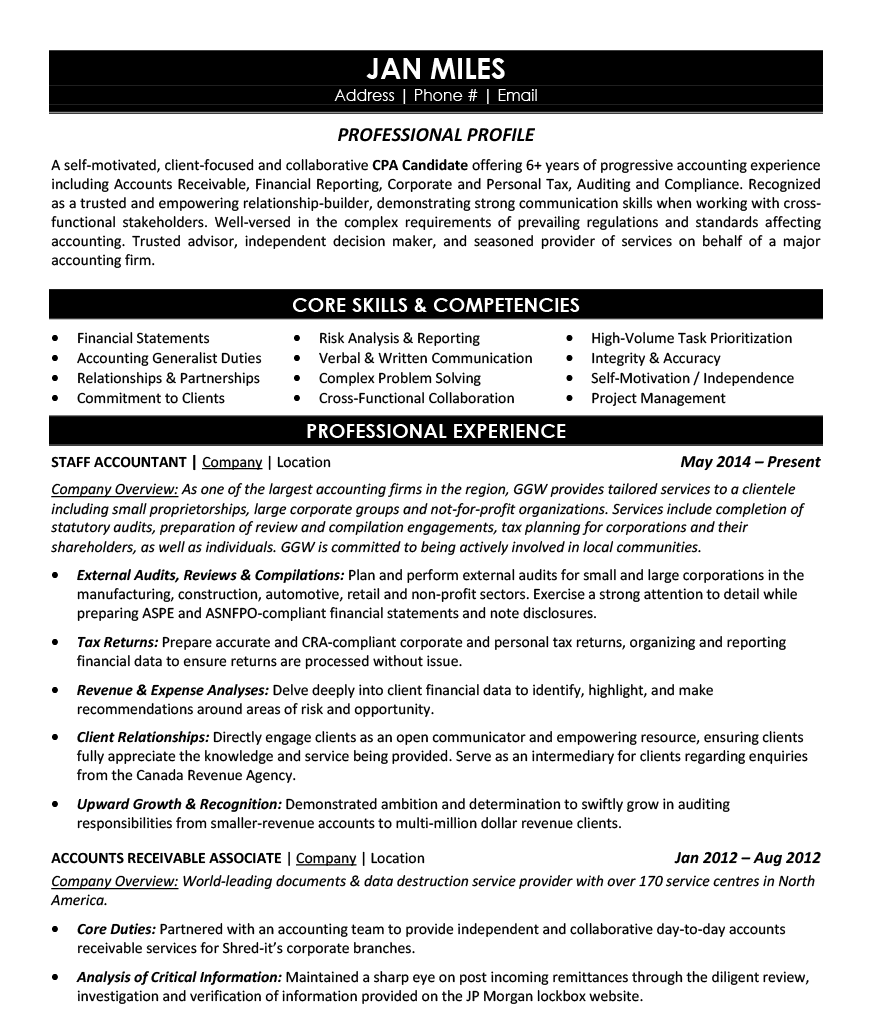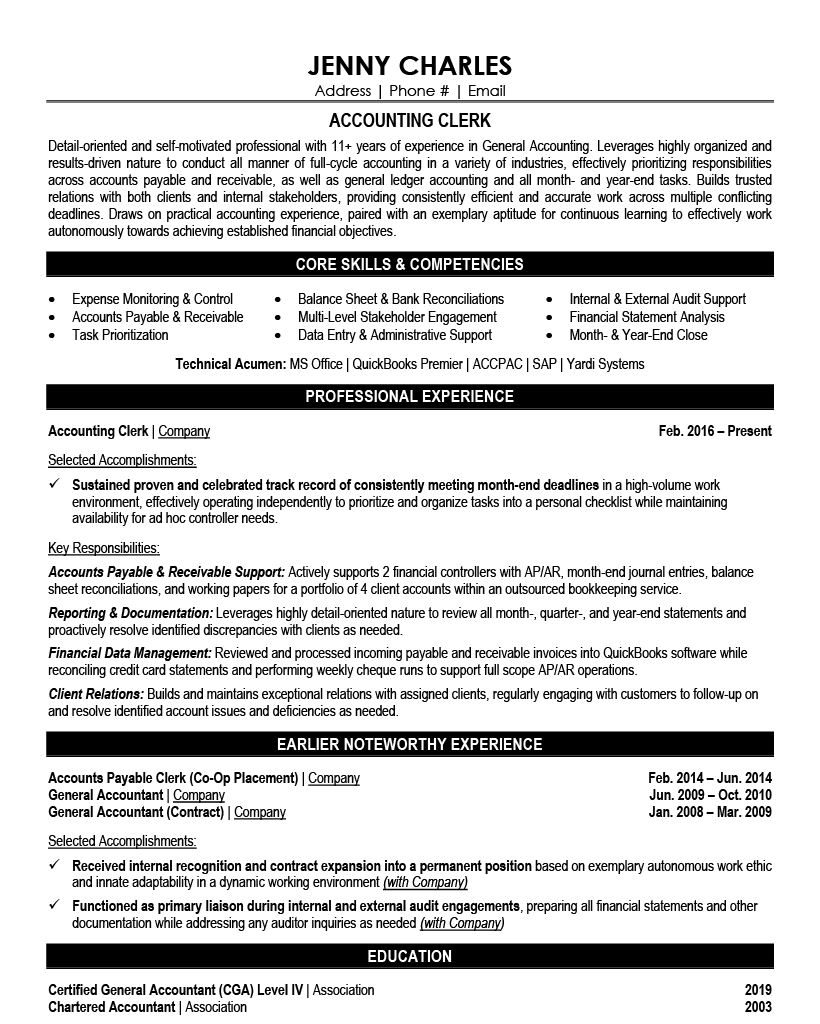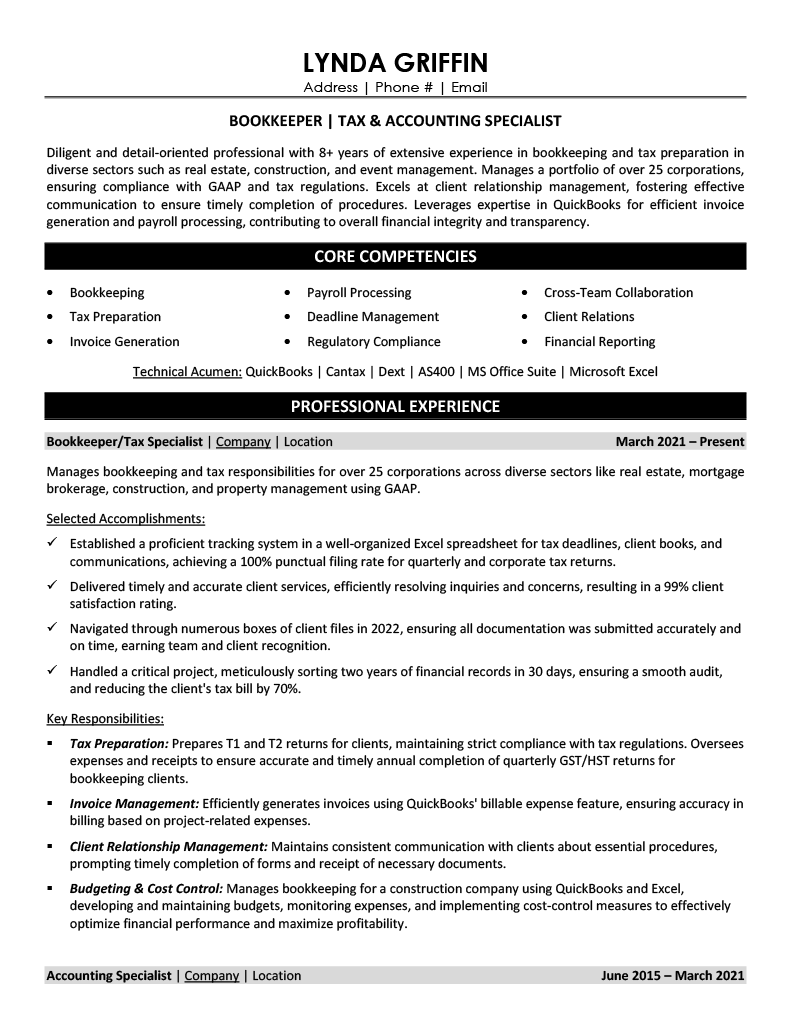Accounts Payable
Resume Sample
A real resume example showing how we transform high-volume invoice processing into proof employers trust
Being qualified isn't enough — you need to be the obvious choice.
We fix your resume with one conversation
What Makes a Strong Accounts Payable Resume?
An Accounts Payable resume must prove you can process high-volume invoices accurately and efficiently. Hiring managers scan for transaction volume, reconciliation experience, software proficiency, and attention to detail. This sample demonstrates processing 2500+ monthly transactions across 250+ clinics with strong cross-functional collaboration.
Why Do Accounts Payable Resumes
Get Rejected?
Most accounts payable resumes get rejected not because of ATS software, but because they don't prove you're better than the other 52.6 applicants. Generic bullets like "managed construction projects" don't differentiate you — quantified achievements do.
See how we transform generic statements into interview-winning proof:
Processes 2500+ transactions monthly and demonstrates excellent organizational efficiency and cross-functional communication in reconciliation procedures."
Quantifies both scope (250+ clinics) and volume (2500+ transactions), while highlighting organizational and communication skills essential for AP roles.
Liaises with manager to resolve any complaints occurring from Regional Managers."
Shows proactive problem-solving, multi-level stakeholder communication, and process discipline - all critical for AP accuracy.
Set-up general ledger including session dates, fiscal calendar, and ongoing entries and updates. Balanced entire fiscal year based on provided transaction data, creating accurate balance sheets and account statements."
Demonstrates advanced technical capability beyond basic AP processing, showing system implementation skills valuable for career advancement.
How Do Accounting Resume Writers Transform a Accounts Payable Resume?
Professional resume writers transform accounts payable resumes by analyzing job postings for required keywords, extracting specific achievements through targeted questions, quantifying impact with dollar values and percentages, and positioning you as the solution to employer problems.
We Analyze Accounts Payable Job Postings
We identify exactly what hiring managers search for:
- Budget management and cost control requirements
- Schedule recovery and timeline management skills
- Site safety compliance and OSHA standards
- Subcontractor coordination and vendor management
We Extract Your Achievements
Our 1-on-1 interview uncovers:
- Project values and budgets you've managed
- Team sizes and subcontractors you've coordinated
- Problems you've solved that others couldn't
- Metrics you didn't think to track or quantify
We Quantify Your Impact
We find the numbers that prove ROI:
- Dollar values of projects completed on time
- Percentage of schedule improvements achieved
- Cost savings from value engineering decisions
- Safety record improvements and incident reductions
We Position You as the Solution
Your resume proves you solve employer problems:
- Delivering projects on time despite site challenges
- Managing subcontractors and maintaining quality
- Controlling costs while meeting specifications
- Leading teams through complex project phases
Listen to a Real Resume Interview
Hear how our writers extract achievements from accounts payable professionals.
What Does a Accounts Payable Resume Interview Look Like?
A accounts payable resume interview is a conversation where our writer asks targeted questions about your projects, probes for specific details, and extracts achievements you'd never think to include.
Manages invoice processing for 250+ clinics owned by company, organizing all expenses according to categories including utilities, general expenses, and marketing.
Processes 2500+ transactions monthly and demonstrates excellent organizational efficiency and cross-functional communication in reconciliation procedures.
Every bullet on this resume was created through this same process.
Schedule Your InterviewHave questions? 1-877-777-6805
Watch How We Transformed Khoi's Resume
See how our interview process uncovered achievements and turned them into interview-winning proof.
Get Your Resume Transformed
What a Accounts Payable Resume Example That Gets Interviews Looks Like
A complete accounts payable resume is typically 2 pages and includes a professional summary, core competencies, detailed work experience with quantified achievements, education, and certifications. Here's both pages of an actual resume created through our interview process.
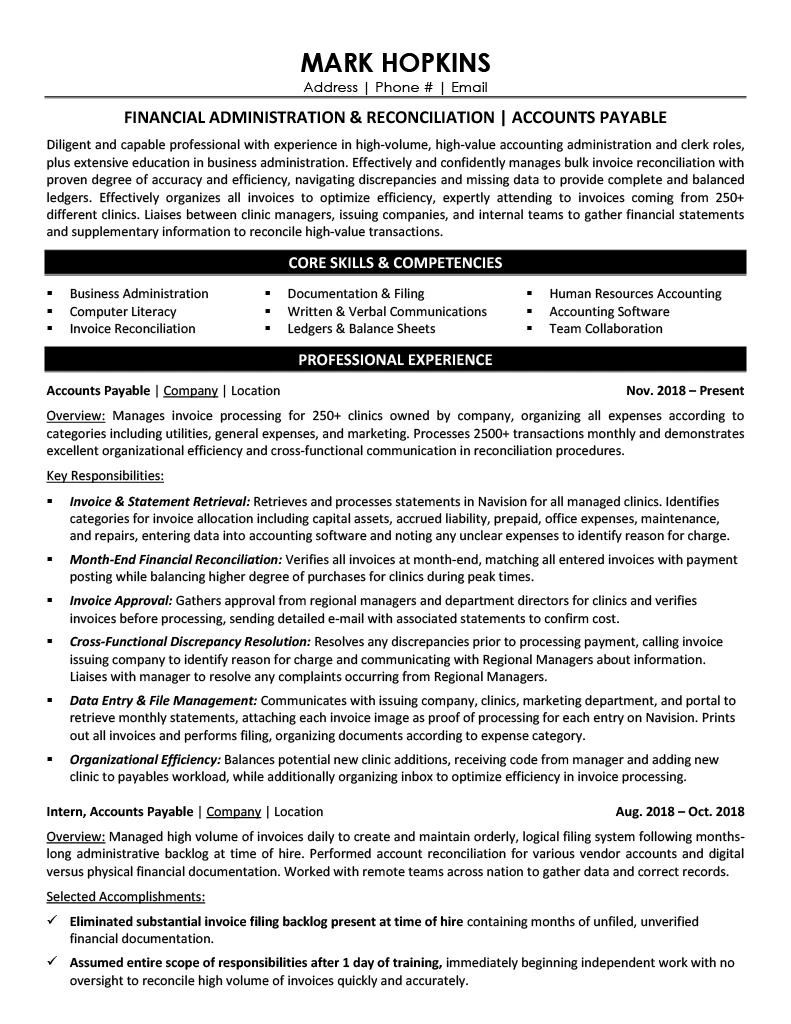
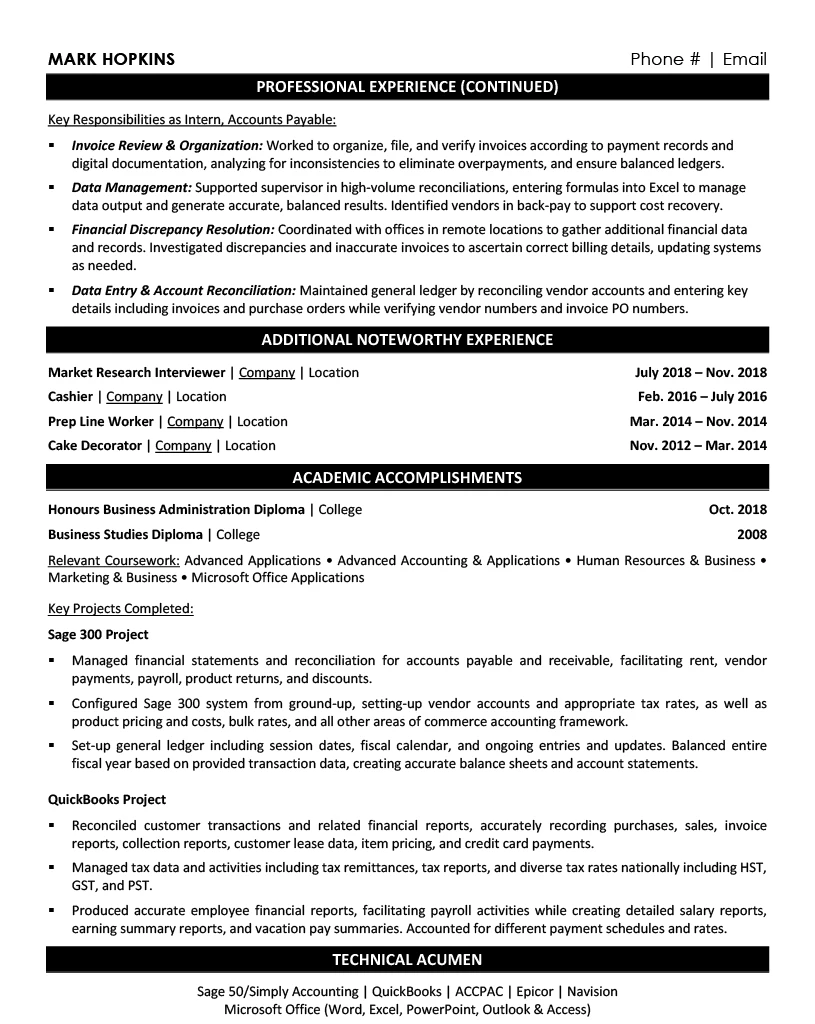
Which Accounts Payable Resume Example
Do You Need?
The accounts payable resume you need depends on your career stage:
Career Advancement
Your resume needs to prove attention to detail, data accuracy, and basic accounting knowledge.
Questions We Ask in Your Interview:
- What data entry or invoice processing experience do you have?
- What accounting software have you used?
- How do you ensure accuracy in high-volume work?
What We Highlight on Your Resume:
- Data entry accuracy and volume
- Software proficiency
- Attention to detail examples
- Relevant education or coursework
Senior Transition
Your resume needs to differentiate you through volume handled, process improvements, and leadership potential.
Questions We Ask in Your Interview:
- What is your monthly transaction volume?
- Have you implemented any process improvements?
- Do you train or mentor other AP staff?
What We Highlight on Your Resume:
- High transaction volume metrics
- Process improvement initiatives
- Cross-functional collaboration
- Problem resolution examples
How Do You Write a Accounts Payable Resume That Gets Interviews?
To write a accounts payable resume that gets interviews, focus on four key sections:
- Professional Summary — highlighting your experience level and specialty areas
- Skills Section — matching keywords from your target job postings
- Work Experience — quantified achievements using the Problem-Solution-Result format
- Credentials — relevant certifications and education
Most accounts payable resume guides give you generic templates. We interview you to extract the specific achievements that prove your value - like processing 2500+ transactions monthly or configuring Sage 300 from the ground up.
What Should an AP Specialist Put in Their Professional Summary?
Your summary must signal high-volume capability and attention to detail immediately.
Include years of experience, transaction volume, key software proficiency, and your most impressive accuracy or efficiency metric.
For those entering AP roles, emphasize data accuracy and software skills.
Expert Questions We Ask:
- "What data entry or invoice processing experience do you have?"
- "What accounting software are you proficient in?"
For experienced AP professionals, emphasize volume and process improvements.
Expert Questions We Ask:
- "What is your monthly transaction volume?"
- "What process improvements have you implemented?"
What Skills Should an AP Specialist Highlight?
Skills must demonstrate both technical capability and interpersonal effectiveness.
Lead with invoice reconciliation, accounts payable/receivable, documentation, and software proficiency. Include communication and team collaboration skills.
Technical skills establish credibility for AP roles.
Expert Questions We Ask:
- "What accounting software have you used?"
- "What reconciliation experience do you have?"
Advanced skills differentiate senior AP professionals.
Expert Questions We Ask:
- "What ERP systems are you proficient in?"
- "What cross-functional collaboration have you led?"
How Should an AP Specialist Describe Their Experience?
Show both execution capability and problem-solving skills.
Lead with volume (transactions, vendors, locations). Highlight discrepancy resolution, reconciliation accuracy, and any system implementations.
Demonstrate readiness for high-volume AP responsibilities.
Expert Questions We Ask:
- "What invoice processing experience do you have?"
- "How do you ensure accuracy in your work?"
Demonstrate senior capability through metrics and improvements.
Expert Questions We Ask:
- "What is the largest volume you've processed?"
- "What improvements have you made to AP processes?"
What Education Matters for AP Specialists?
Education supports technical credibility for AP roles.
Include business or accounting degrees, software certifications, and relevant coursework. This sample shows Honours Business Administration Diploma.
Degrees and certifications demonstrate commitment.
Expert Questions We Ask:
- "What accounting or business education have you completed?"
- "What software certifications do you have?"
Advanced education supports career progression.
Expert Questions We Ask:
- "What additional certifications have you earned?"
- "Are you pursuing accounting credentials?"
Skip the guesswork — let our expert resume writers ask these questions for you.
Schedule Your Resume InterviewHow Does a Resume Interview Extract
Your Accounts Payable Achievements?
A professional resume interview extracts accounts payable achievements by probing into specific projects, uncovering the goals you were trying to achieve, documenting the systems and processes you implemented, and surfacing challenges you overcame.
What Projects Should You Include
on a Accounts Payable Resume?
Include projects that demonstrate scope, stakes, and significance. We probe to understand the project value, team size, and your specific role.
How Do You Show Business Impact
on a Resume?
Connect your work to business outcomes by documenting the company's objectives and how your contributions achieved them.
What Systems and Processes
Should You Highlight?
Document the specific systems, processes, and strategies you implemented. This is where your expertise becomes visible.
How Do You Present
Challenges Overcome?
Describe challenges you faced and how you solved them. Problem-solving examples prove you can handle obstacles.
The Power of a 1-on-1 Resume Interview
No cookie-cutter calls. Your interview length matches your career complexity. We ask the questions you can't ask yourself.
Telephone Interview
- Students / New Grads
- Specialists, Analysts, Coordinators
- Targeting mid-level positions
Telephone Interview
- Individual Contributors
- Managers
- Career Changers
- Seeking Promotions
- Masters / Ph.D Holders
Telephone Interview
- Senior Managers
- Directors
- Department Heads
- Senior Writer Assigned
Telephone Interview
- Vice Presidents
- C-Suite Executives
- Business Owners
- Senior Writer Assigned
- Executive Resume Format
How Competitive Is the
Accounts Payable Job Market?
Accounts Payable jobs are medly competitive, averaging 53.6 applicants per position. With most job seekers applying to 20+ roles, you're competing against approximately 1,072 candidates for the same jobs.
Accounts Payable Job
Jobs Posted (30 Days)
Per 20 Applications
Hardest to Land
Most competitive accounting rolesEasier to Land
Less competitive accounting rolesData based on LinkedIn job postings, updated January 2026. View full job market data →
Here's the math most job seekers don't do:
Your resume needs to stand out against 1,072 other accounting professionals.
Most of them list the same projects. The same certifications. The same responsibilities.
What makes you different is the story behind the projects.
Accounting Professionals We've Helped Are Now Working At
From general contractors to specialty trades, our clients land roles at top accounting firms across North America.
Reach Accounting's Hidden Job Market
80% of accounting positions are never advertised. Get your resume directly into the hands of recruiters filling confidential searches.
Accounting Recruiter Network
When you purchase our Resume Distribution service, your resume goes to 400+ recruiters specializing in accounting — included in Advanced & Ultimate packages.
Robert Half
Nationwide
Kforce Finance
Tampa, FL
Sample Accounting Recruiters
400+ Total| Agency | Location |
|---|---|
RH Robert Half |
Nationwide |
KF Kforce Finance |
Tampa, FL |
HR Hays Recruitment |
Nationwide |
RA Randstad |
Nationwide |
AD Adecco |
Nationwide |
Frequently Asked Questions About
Accounts Payable Resumes
An Accounts Payable resume should include transaction volume, software proficiency (QuickBooks, SAP, Sage), reconciliation experience, and accuracy metrics. Highlight discrepancy resolution skills and any process improvements you've implemented.
Use metrics like: monthly transaction volume (this sample shows 2500+), number of vendors or locations managed (250+ clinics), accuracy rates, and cycle time improvements. Numbers make your capabilities concrete.
AP positions average 36 applicants per job. High transaction volume experience and software proficiency (especially ERP systems) help differentiate candidates in this competitive market.
Key software includes QuickBooks, SAP, Sage (300, 50), Oracle, NetSuite, and industry-specific systems like Navision or Yardi. This sample demonstrates Sage 300, QuickBooks, ACCPAC, and Navision proficiency.
Yes. Entry-level AP experience is valuable - this sample shows an AP internship where the candidate eliminated a substantial filing backlog and assumed full responsibilities after just 1 day of training.
Demonstrate through specific examples: accuracy rates, discrepancy resolution processes, reconciliation procedures, and audit support. This sample shows month-end verification matching invoices with payment posting.
Ready to Transform Your Resume?
Schedule your 30-minute interview and get a resume that proves you're the obvious choice.
Choose Your Interview LengthHave Questions?
Talk to an advisor who can recommend the right package for your situation.
Talk to an Advisor 1-877-777-6805